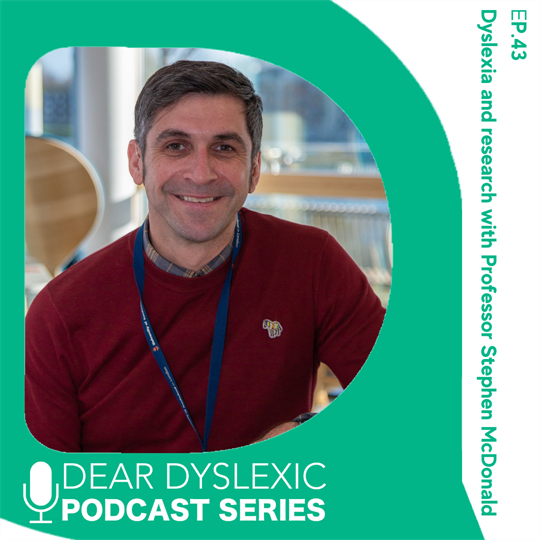Meet Professor Stephen Macdonald

Tell us about your role within the Department of Sociology and your programme
I am the Academic Director of the Master of Social Work (MSW) in the Department of Sociology. The MSW is a two-year programme which qualifies students as professional social workers. Once students complete this programme they can register with Social Work England and practice as a social worker in the UK. This registration is also transferable to countries outside of the UK.
We actually have a limited number of NHSBSA Social Work Bursaries available to eligible students confirming a place on Master of Social Work (MSW). Get in touch if you’re interested to find out more.
Tell us about your research interests/specialism within the Department of Sociology
My research interests are primarily in the field of disability, crime, and victimisation. Theoretically, my research is underpinned by Disability Studies. My research is multidisciplinary and brings together ideas from Disability Studies, Criminology and Social Work. Some of my recent projects include studies into disability hate crime; disability and ‘low level’ forms of community violence; the criminal exploitation of disabled people by organised criminal groups; and disabled offenders and desistance.
What can students expect from their first few weeks on the programme / in the Department of Sociology?
Studying social work in the Department of Sociology is an intensive course. Most of the programmes taught sessions are in term one. Terms two and three have some taught sessions but most of the time students are on placement working in a social work organisation. Therefore, in term one students are taught in the classroom for four days a week with one day for reading and preparation. Teaching days usually consist of six hours of contact time and one hour break. In the first month, students will learn social work theory, social work law, relevant policy, and social work models of intervention. Students will also meet people with lived experience and senior practitioners working in the field.
What do you think makes the programme or the Department of Sociology unique?
Our social work programme is one of the leading social work courses in the UK. We have small teaching groups, so students have a lot of contact time with academic staff, practitioners, and people with lived experience. Our staff are all leading academics and researchers in the field of social work. We are the home of Contextual Safeguarding, we are leaders in child protection and transnational social work. We also have staff who are experts in disability, neurodiversity, and mental health. Our staff are also part of the decolonisation movement within the Department of Sociology.
What advice would you give someone thinking of studying in the Department of Sociology?
Durham is an excellent place to study and a beautiful city to live. As Durham is one of three collegiate university systems, when a student arrives, they will be placed in a college. My advice to students is to engage with college life, as this is a unique tradition which is not on offer at most UK universities. Regarding social work, my advice would be to study theories of marginalisation and deprivation before progressing with your studies.
What have your students gone on to do after graduating from Durham?
All our graduates go on to work in the field of social work. As we have a shortage of social workers in the region (and in the UK), most of our students already are in social work employment before they graduate. We have a 100% employment record for our graduates, and many of the senior social workers across the region, and nationally are Durham University graduates.
Find out more
- Professor Stephen Macdonald is a Professor in the Department of Sociology and Academic Director for the Master of Social Work programme. If you would like to find out more about Steve, visit his profile.
- Learn more about the Master of Social Work (MSW) programme
- Our Department of Sociology is ranked 2nd in the UK for Criminology and 6th in the UK for Sociology in The Guardian University Guide 2023. Feeling inspired? Visit our Sociology webpages to learn more about studying with us.
- If you’d like to share your story or insights into your work, visit our Submit a blog or vlog page to learn more.
